Dialogue with Working Parents
#01 CROSS TALK
Connecting work and personal life, so we can live fulfilling lives according to their own wishes.
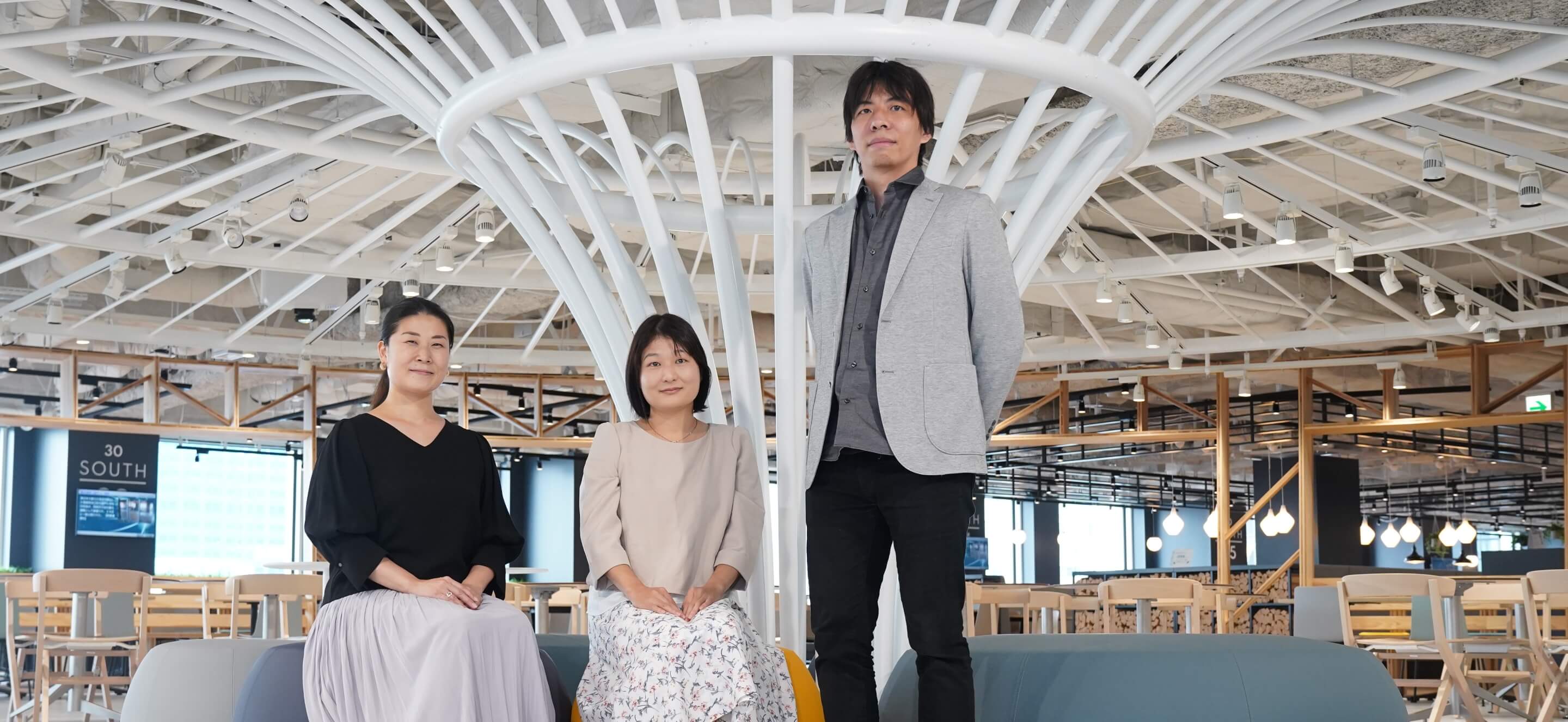
“Work-life integration” is a concept of not treating work and home life as conflicting matters, but of linking them together to make life more fulfilling. The JT R&D Group promotes the application of systems and establishes workplace environments which can realize flexible working styles, so that each member can live out a rich, satisfying life. Child care, for example, is a momentous life event. This time, we interviewed four fathers and mothers of young children, and asked them to speak about raising their children and their careers.
MEMBER
-
 Product Development
Product DevelopmentAyako Koizumi
Responsible for planning and operation of measures for strategy formulation and enhancing organizational ability in a department for product development.
Up to this point, has taken maternity leave and child care leave two times. Mother of a one-year old son and four-year old daughter. -
 R&D Foundation
R&D FoundationJunko Fujimoto
Involved in the management of teams responsible for planning and operating recruitment and internal training.
Mother of a daughter in 6th grade of elementary school. In addition to maternity leave and child care leave, has used the spouse overseas transfer leave system in the past. -
 Science Research
Science ResearchYoshihiro Enomoto
Involved in the development and improvement of analysis and analysis methods for components contained in smoke from tobacco products.
Has taken child care leave for one month. Father of a two-year old son and four-year old daughter. Currently taking on the challenges of child care and housework while dividing household tasks with his wife. -
 Strategic Planning
Strategic PlanningKeisuke Sugiura
Responsible for formulating medium- and long-term strategies for product development, and for project management of new product development.
Has taken child care leave for two months. Rookie dad of a two-year old son.
What did you feel and think about taking maternity leave (leave before and after childbirth) or child care leave?
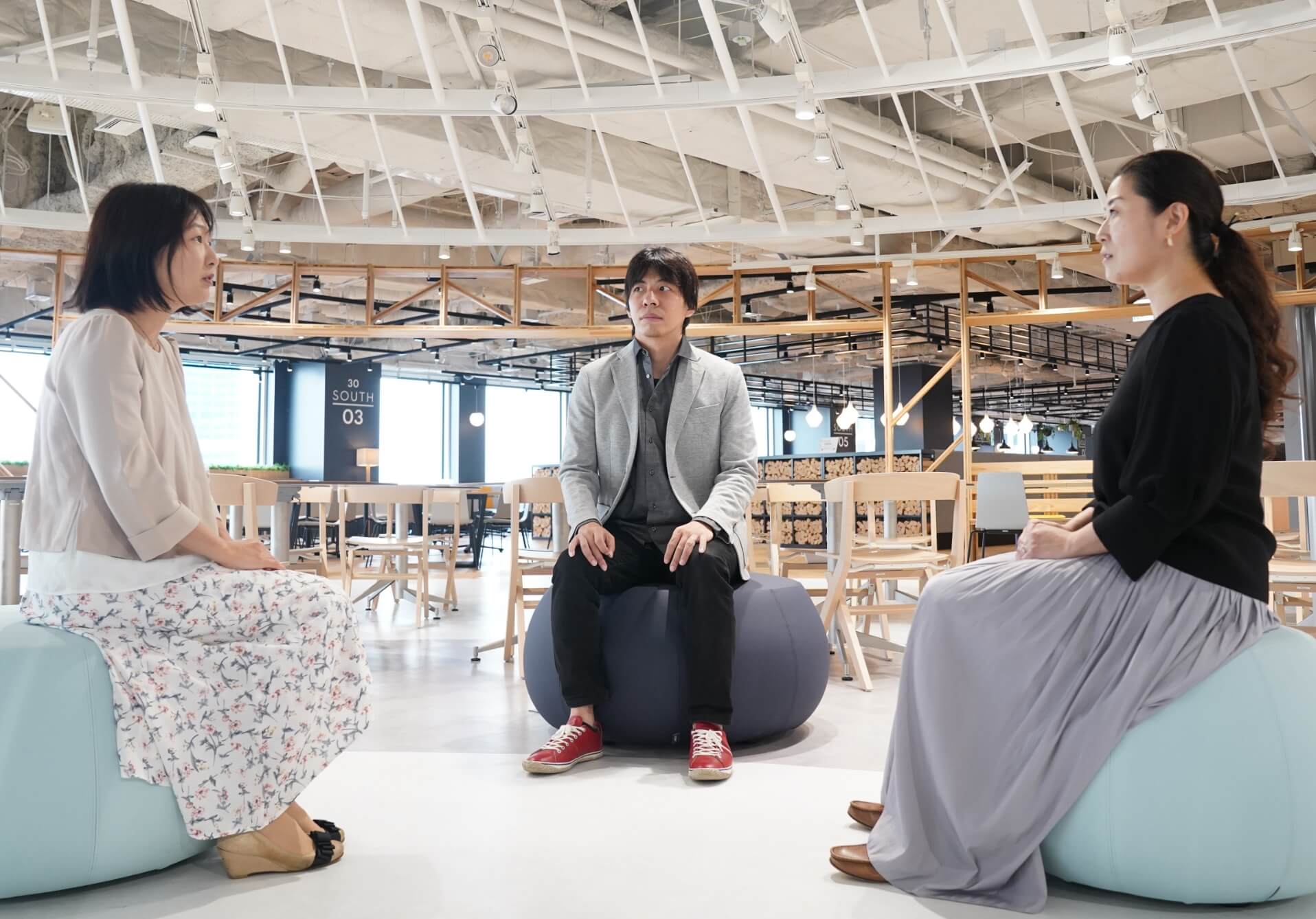
A corporate culture where taking maternity and child care leave is only natural.
-

Fujimoto -

Koizumi I took maternity leave and child care leave twice, but did not feel any unease about it. There is an atmosphere here that it is only natural to take maternity and child care leave with the assumption of returning to the workplace afterward, and as far as I know there have been no cases of co-workers who resigned due to having children. I talked with my colleagues during my leave using chat apps, was invited to and participated in a farewell lunch gathering for a senior member who had helped me a lot, and my superior even came to the nearest station to deliver mail to me. Even during my maternity leave and child care leave, I was able to find out about the workplace situation from conversations with my colleagues through chat apps, and since they were always concerned about me, I did not have any feelings of alienation at being away from work.
-

Sugiura I also didn’t have any apprehension about taking child care leave, since colleagues older than me took leave as though it was only natural too. During my child care leave, my colleagues supported me a great deal. Our company has a climate which encourages people to rely on team members and other colleagues, and for us all to support each other. I don’t believe there are any person in our company who have a negative impression toward men taking child care leave.
-

Enomoto I entered the company as an employee with prior experience. My first child was born while I was at my previous company and my second after entering the JT Group, and I took child care leave at both times. My previous job was one that was directly involved with consumers, and there was pressure about causing burdens to people around me such as by passing on work to my colleagues, so the atmosphere made it difficult to take child care leave. However, as everyone else has said, the JT Group has a culture where it is only natural to take child care leave, and provides various types of support systems. My superiors and colleagues gave me advice like “As someone with more life experience, I can tell you that taking this opportunity for child care leave is very good for your child,” so I didn’t feel any obstacles to taking time off for it.
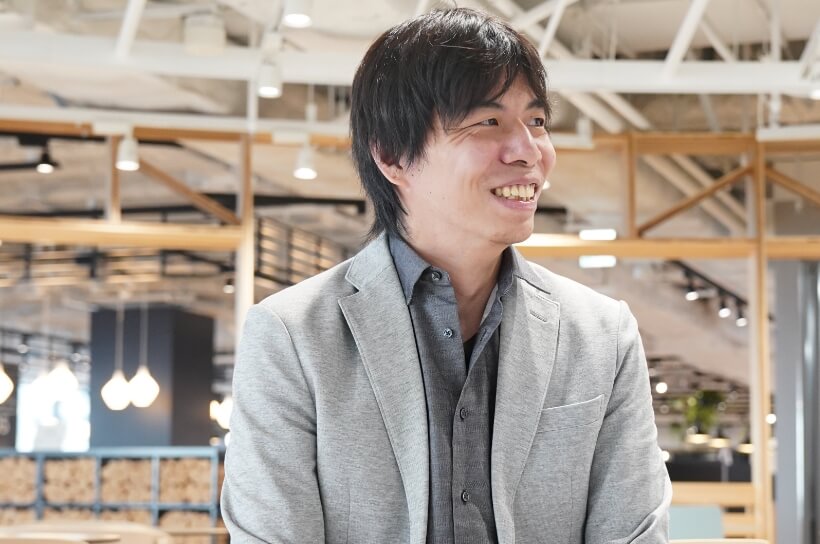
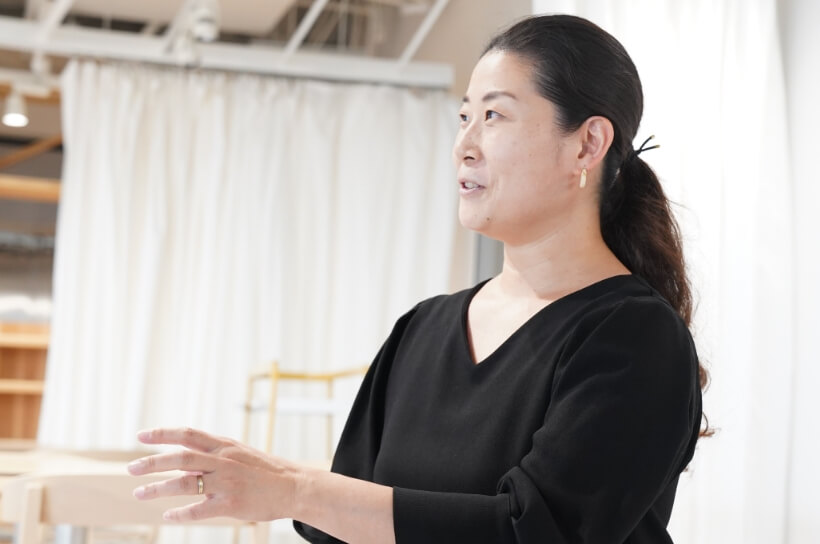
A wide variety of employee benefit systems to support child care.
-

Fujimoto I have used many types of JT’s systems, including maternity leave and child care leave, taking time off when I had severe morning sickness, and the spouse overseas transfer leave system when I accompanied my husband on an overseas assignment. I think that among the four of us here, I have gotten the most use out of them. Among them, the spouse overseas transfer leave system in particular was a huge help. I am sure there are many people who have no choice but to regretfully quit their jobs if they have to accompany their spouses on overseas assignments when their children are still young. Since I was able to take leave without resigning for the two-year period in which my husband was stationed overseas, other mothers who I knew were astonished when I told them about it, saying “Your company has a variety of systems, right?”
-

Enomoto From an economic perspective, the daycare fee assistance system helped me out a lot. As is often the case, nursery schools in the area I lived in had no openings, so I had to enroll my child in an unlicensed nursery but the daycare fees were very expensive. Thanks to this system, I was able to choose a nursery school without being overly concerned with finances. I believe that this system is probably used by nearly all employees here who are raising children.
-

Sugiura The employee benefit services with contracts under the company were also very helpful. I was able to select from a wide range of benefit items when I wanted to and could obtain economic assistance. For me, I used it to arrange my necessary nursery items.
-

Koizumi When my child became sick, I used a leave system to support early return to work. This is a system which allows employees to take leave after returning to work from child care leave according to the number of days until their child becomes one year old, and is very useful since children get sick with all kinds of infections after entering nursery school. Essentially, this is a time for learning about children’s illnesses, so during that time, I used the leave system frequently.
-

Sugiura The flexibility of the child care leave system was helpful to me. Since I was able to divide up my child care leave into twice, I took the one month before my child turned one year old off and was able to focus on looking for a nursery school. Also, my working hours are based on a flextime system, so I am able to pick up my child from nursery school and also go to the doctor when necessary.
Your working styles have probably changed since you became parents. How were things after actually coming back to work?
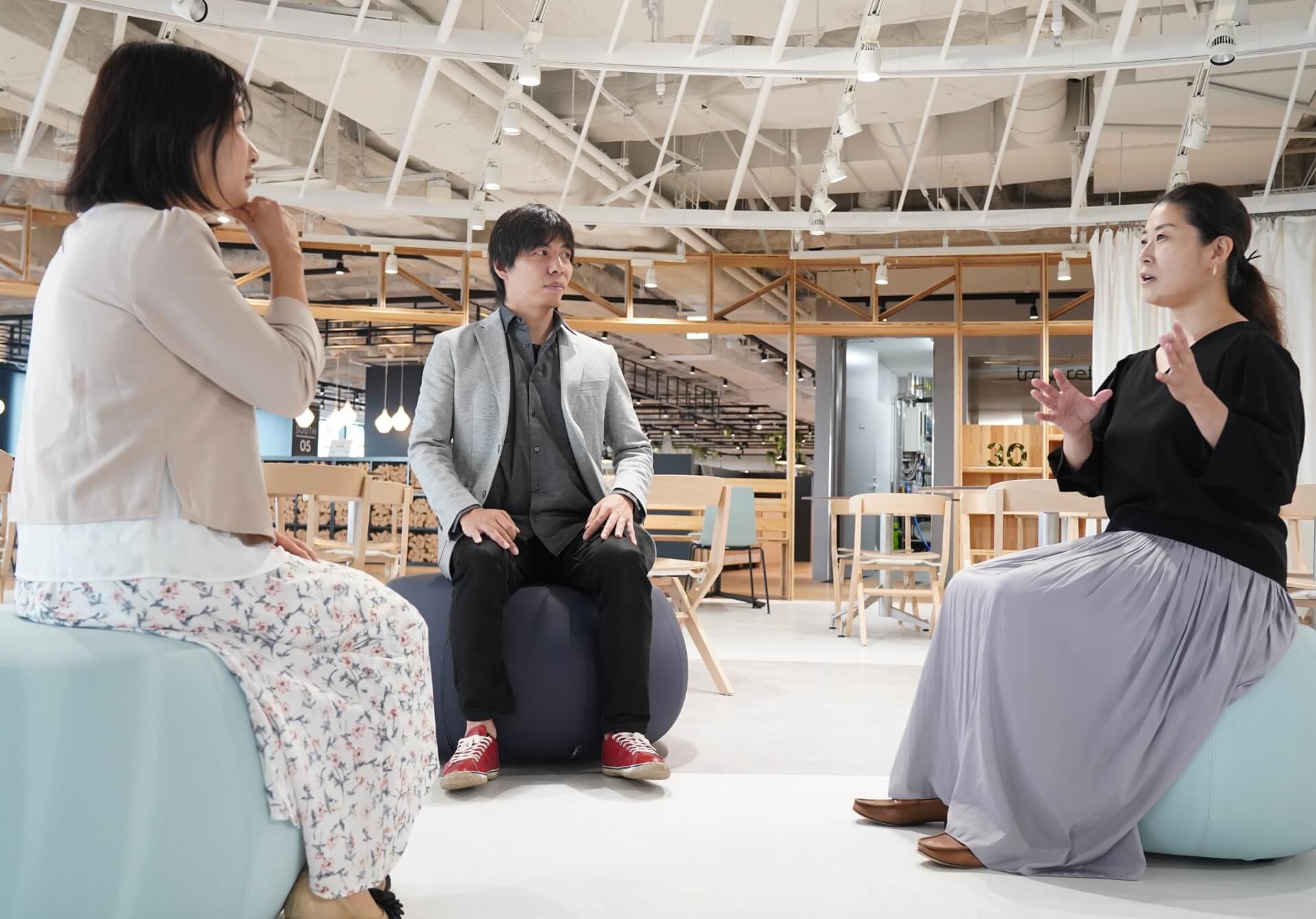
Returning to work smoothly, with consideration and support from colleagues.
-

Fujimoto When I began reduced-hours work after returning from leave, I felt sorry to everyone since it seemed that there wasn’t much I could do to contribute to the team in my limited working time. But I also felt that if I did the things I could do well, we could support each other and proceed with work. That encouraged me to do my best with a positive attitude.
-

Koizumi At the time of my first maternity leave, the circumstances of nursery schools in Tokyo led me to return to work in roughly four months, but I honestly had no time after returning to feel uneasy. Roughly two months after returning, I was transferred to a position that I had requested even before giving birth, so with the change in my work content, I was able to create a new lifestyle for my own work and my child while receiving support from my team members.
-

Sugiura In my case, I split my one-month leave into two parts and took shorter child care leave periods, so I was able to return to work with almost no change in the way things felt from before. Considering the speed of changes in the business environment, I might have felt some anxiety if I had taken leave on a yearly basis.
-

Enomoto I felt some unease on my first day back at work, but thanks to the incredible consideration and support I received from my colleagues, I was able to return without feeling any uncomfortable pressure.
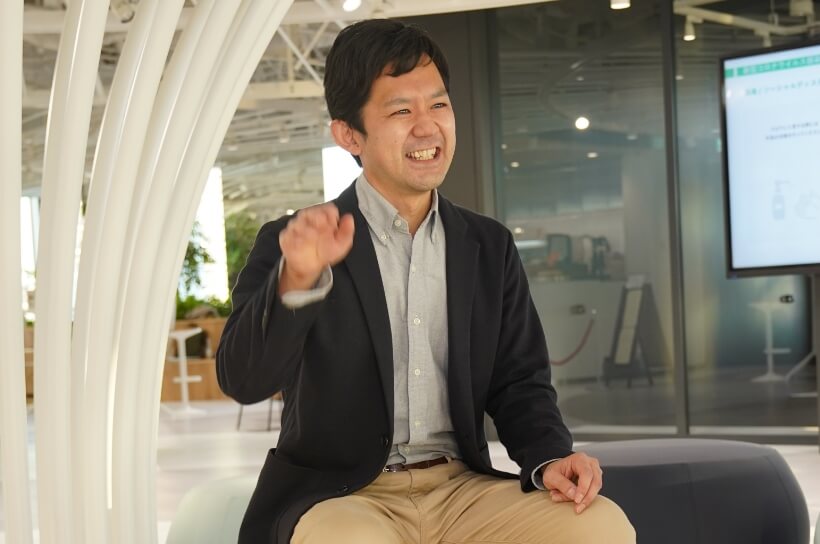
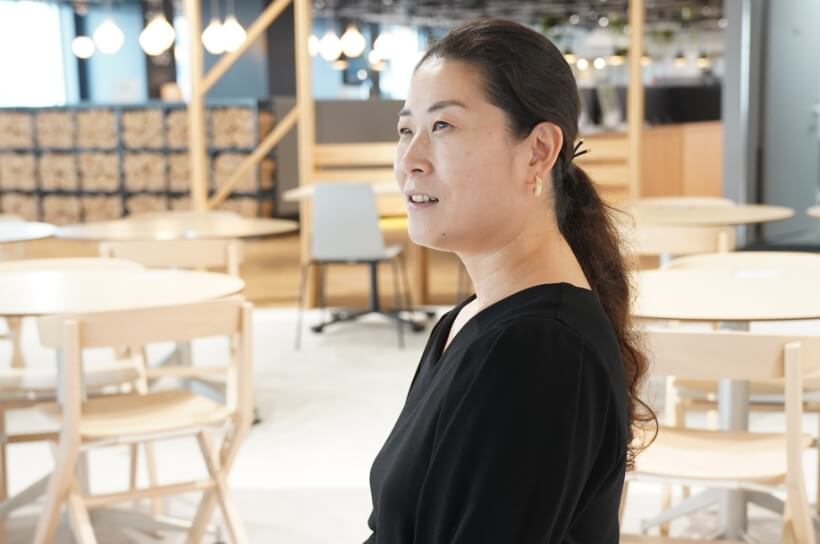
Career plans are not designated by the company, but rather are should be thought of by ourselves..
-

Fujimoto We don’t receive any information related to our work during leave. Therefore, after returning to work I had to catch up on how projects had moved forward, how far they had advanced, and what was happening with them now. Yet for me at least, I did not feel like my career had been delayed because of taking leave, and after returning I did not feel that the level of work given to me was intentionally lowered. What impression do you all have about the subject of career plans?
-

Sugiura I think uneasy feelings that taking maternity leave or child care leave might somehow affect our careers probably arise first of all when career plans are formulated by people other than ourselves, and we are worried that our inability to fulfill them will leave a negative impression. Actually, though, career plans should be thought of by employees.
-

Fujimoto Independently and focusing on ourselves.
-

Sugiura What state do we want to be in after five or ten years? What kinds of experience should we accumulate in order to reach that state? I believe career plans should be created while thinking of such things ourselves. Therefore, the question of whether taking maternity or child care leave will affect our career plan should actually be asked not to the company, but to ourselves. For example, if we are thinking of taking the upcoming one year for child care leave, we should decide for ourselves whether or not it is possible to extend the goal state we had aimed to reach in five years to be reached in six years instead, and to make adjustments accordingly.
-

Enomoto I believe that our company is with many possible options on what kind of career to build. In the companies I had experience with before entering the JT Group, there were generally only two paths: to aim for a managerial position, or to advance to the highest level of specialized knowledge while staying as a researcher. In the JT Group, even among the same managerial positions, there are careers not limited only to the area of managing organizational operation, but also in the management of research and development issues as experts, so there are many variations in work levels. I was surprised to find out that there are unexpected career paths that we can discover after actually entering.
-

Koizumi It surprised me that I was able to express my own desires and have them be heard at annual career interviews. For me, as I mentioned earlier, about two months after returning to work from child care leave, I was able to transfer to a department I had been requesting for some time. I do not believe that all of our wishes can be fulfilled, but the JT Group is a company that will listen to the viewpoints of each member and allow them to create their own career plans.
-

Fujimoto In the past few years, there has been an increase not only in new graduate employees, but also employees hired with prior experience like Mr. Enomoto. I have the feeling that the diversity of people who work at our company, including everyone with visions for their careers that include life events such as having children and raising children regardless of whether they are male or female, is rising tremendously. This is leading to a huge range of diversity in the ways that people think about careers, and I predict that trends like these will continue to become even stronger in the future. That is precisely why in JT’s career interviews, questions are asked about the things each member considers important, their senses of value, and their thoughts about their careers, from different perspectives such as work location, type, and content. We have a style of thinking together with individuals about their own roles in activities and contributions.
Still, raising children undoubtedly requires tremendous time and energy. Tell us about any special tips you have to balance work and child care.
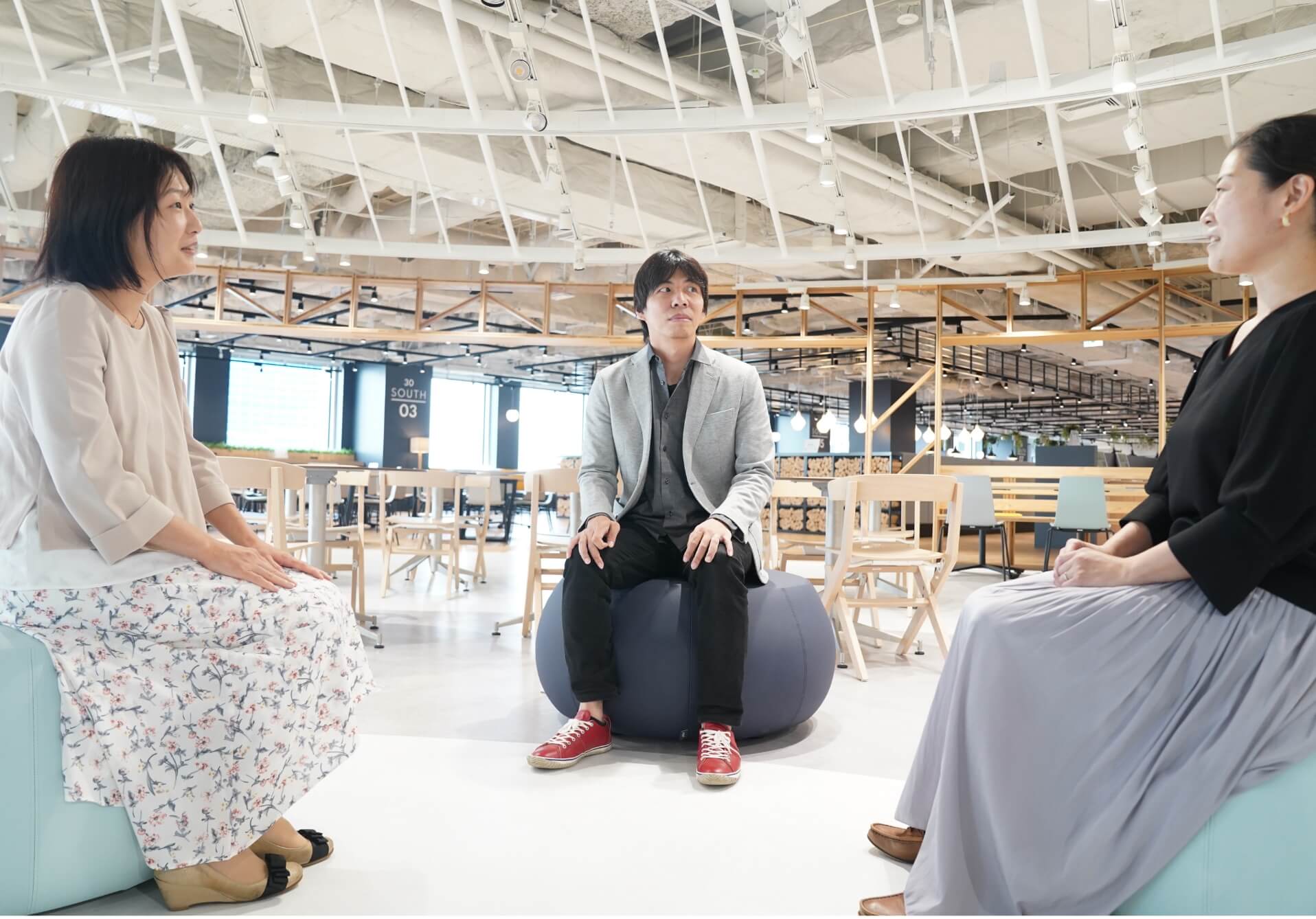
Fully applying what you can use and “cutting corners” every so often is a key to good balance.
-

Fujimoto To balance work with child care, I believe in “cutting corners” at times, but it doesn’t mean I am slacking off. It is not possible to devote myself to both work and child care at a high level simultaneously, so I tell myself it’s okay to relax depending on the time, place, and what I am doing, in a sense stopping worrying about something. I think there are probably people whose goal is to accomplish both work and child care perfectly without easing up, but how about all of you?
-

Koizumi I am often told that I am a “lazy mom” by my family. I use not only the systems within our company, but also family support center services managed by the local government, and additionally ask my parents who live nearby for help. Actually, even right now since my child is sick, I have asked my parents to look after him.
-

Enomoto It’s very difficult to organize things when they are sick, isn’t it? Speaking of my case, when I tried using a service which drop off and pick up the child from lesson class, my child could not match the person in charged and rejected her. I could not do anything about it. At that time, I used the “temporary breaks” included as part of the flextime system and was able to get through it.
-

Sugiura It is definitely possible to balance child care and work. However, I feel that raising the quality of our work on top of that is not easy. In particular, I am working from home most of the time due to the COVID-19 pandemic, so I think that in such cases the boundaries between work and daily life become blurred. When my child comes home from nursery school I am not able to do any work, so I am aware of scheduling my tasks carefully so they can be finished on time.
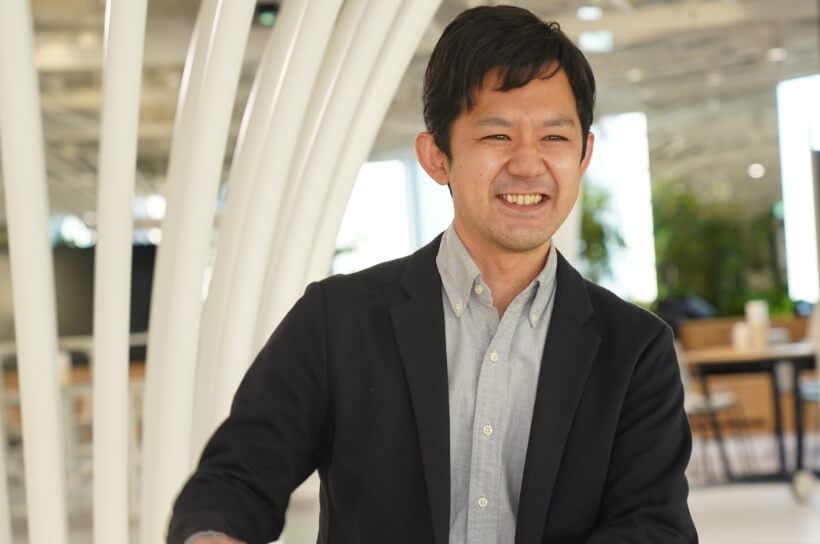

There is no absolutely correct answer, so a style that suits yourself is best.
-

Fujimoto To the two men here, do you ever cut corners when making dinner? I split up making dinner half-and-half with my husband, and when I am busy with work I use prepared foods.
-

Sugiura I also split up making dinner with my wife, and we rotate for each day of the week, but I often use “dinner kits.” With these, ingredients like vegetables are all pre-cut, and I just follow the included recipes to stir-fry or boil or whatever is needed. Then I can add the seasoning ingredients that are provided in an enclosed pouch to finish the dish, so they are very convenient.
-

Enomoto In my case, Wednesday is “Dad’s curry day,” so my menu is already set at only one dish. I found an easy method to make curry quickly on an online recipe site, so I once just followed it and could make good curry in only 30 minutes. This has already become a routine so it’s actually kind of like a time to relax for me.
-

Fujimoto There are times like that, aren’t there? For me, the time to look over my child’s homework is a small breather for me. I make it a point to squeeze in times like those when I have some room in my schedule. I think people should use methods for balancing work and child care that are best suited to themselves. If we find a way of doing things that suits us, instead of being constrained by perfect ideals like “I should only concentrate on work during the day,” and “We should cook hand-made meals with taking time and effort,” it will be easier to keep on doing things and we will also get better at them.
-

Sugiura It’s impossible to predict what will happen with children, isn’t it? If I absolutely cannot participate in a meeting because of child care, I ask my colleagues to take a video of the meeting for me and then catch up on it later. We need to make conscious efforts to raise the quality of our work by using various methods like asking for support from my team members and applying online tools.
-

Koizumi I feel like I am somehow just getting through by using any systems I can use as much as I can, and asking for help from others.
-

Enomoto As I mentioned earlier, the JT Group is a company with many career options. Or to put it another way, I believe the available options for roles in the household and methods to enrich our lifestyles are also expanding. More than anything else, all of the members at our company are remarkably understanding about child care. I believe it is a company where I can enrich my life in a way that suits me best.
-

Fujimoto Although there are new systems being added and enhanced every year, my impression of our company has not changed that much since entering. It may have just had that kind of corporate culture from long ago. Even still, it seems like child care leave for men has only started to actually be taken by the generation of employees who are now in their 30s. I believe that even if support systems exist, they are meaningless if we are not used, so I hope that from here on there will be more and more cases of people using them so that an even better environment can be promoted.
-

Koizumi The JT Group has a thorough benefit system, and all of members give active cooperation and support. I hope that this dialogue has shown that it is a company that makes both work and child care comfortable for us.
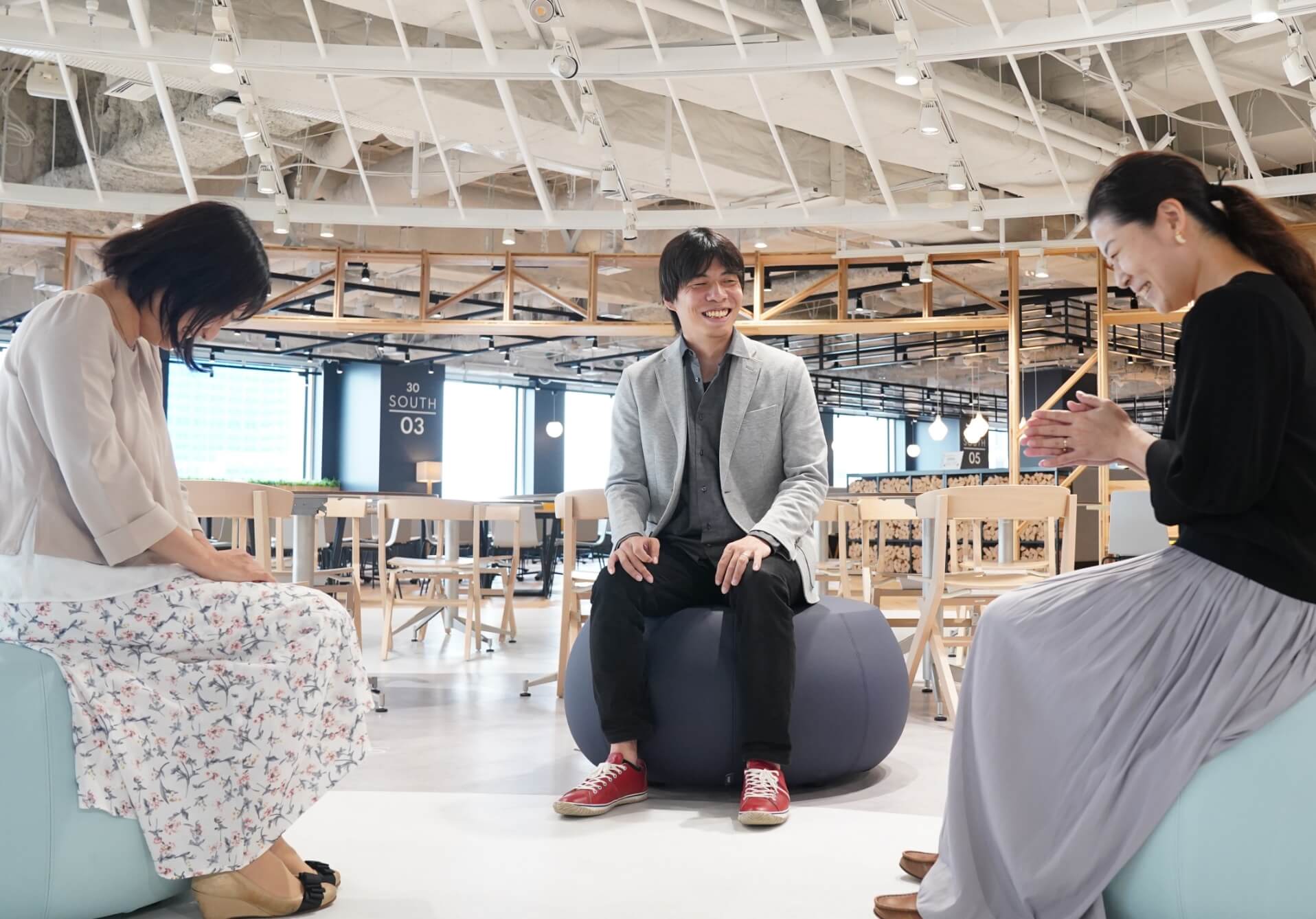
Summary
The JT Group has not only various system which support members’ lifestyles, but also a corporate philosophy that it would like to make true members’ happiness on their personal lives as well as works. Still, building a career while raising children is far from easy. It requires effort to apply systems and other support tools, and to take special steps suited to each person. We believe that the feelings of such ingenuity and effort will be reflected in both work and personal life, so that we can make our lives in both work and personal more enriched and satisfied.
I had no hesitations about taking maternity leave, because there were colleagues around me who had also taken leave around the same time. However, since I had severe morning sickness, even if I went to work while I was pregnant I was not able to accomplish as much as I wanted to, so I felt sorry to everyone. Still, I was able to feel at ease and rest because my superiors and colleagues told me “You don’t have to push yourself.” It is a fact that when taking maternity or child care leave, it can create gaps in one’s career. But since I was secure in having a place to return to even after my leave, I was able to think optimistically that I could focus on work again after returning.